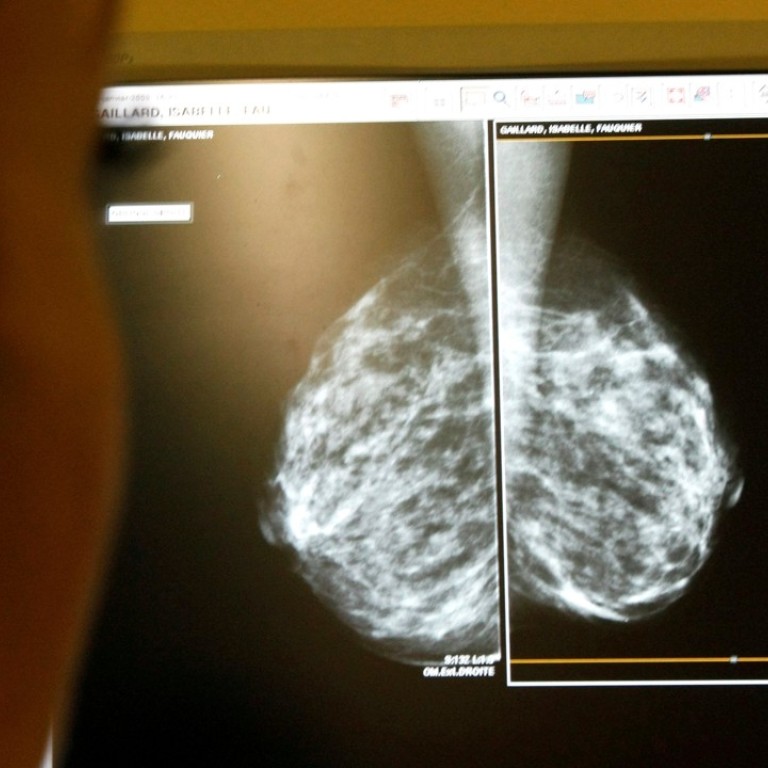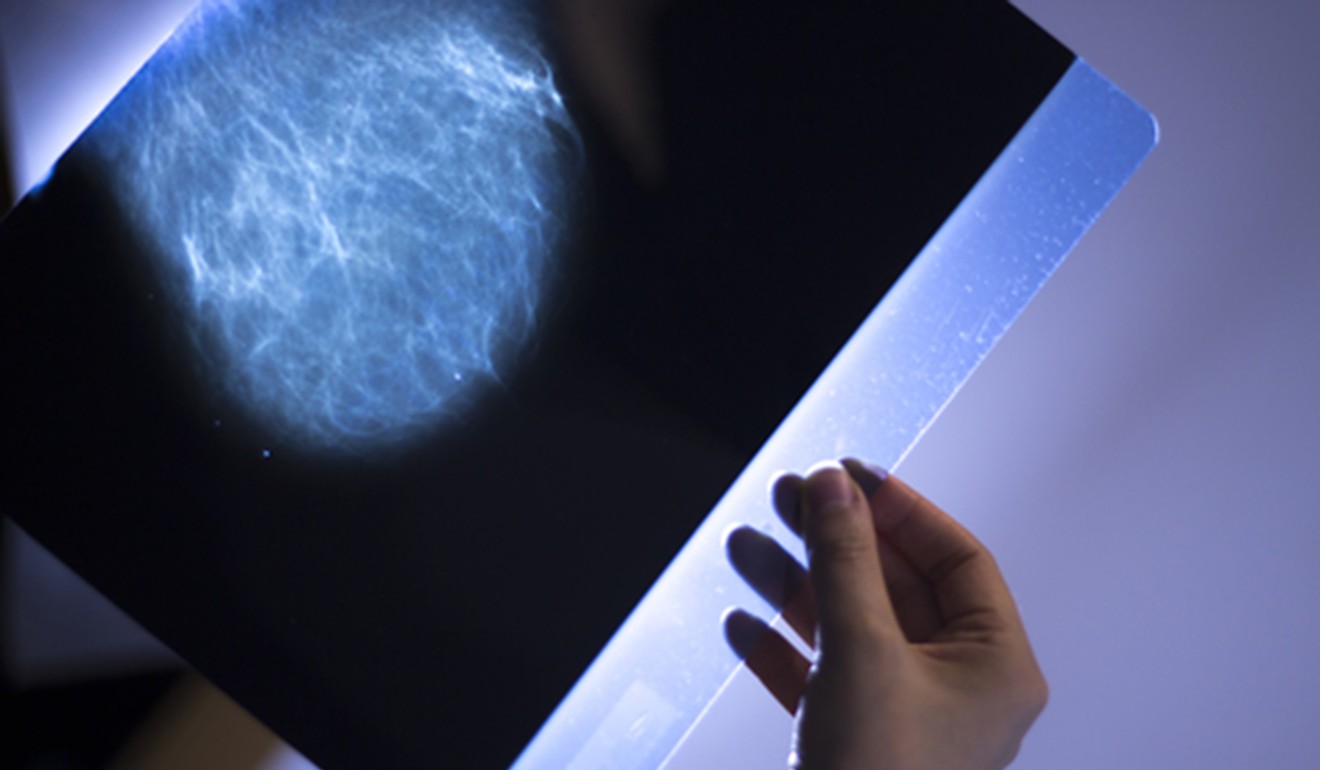
Call for universal breast cancer screening in Hong Kong as study shows most cases are not hereditary
The Breast Cancer Foundation study found that most of the causes of breast cancer were lifestyle-based, and therefore the government should consider population-wide screening
A study of more than 16,000 Hong Kong breast cancer patients has found that only one in seven had a family history of the disease, while another study of close to 3,000 women found only one in 10 had a gene mutation that points to a higher risk of breast or ovarian cancer.
The Breast Cancer Foundation, highlighting the findings on Thursday, said this made clear that the vast majority of breast cancer cases in the city were not hereditary, underscoring the importance and need for universal screening.
But experts remain divided on the need for widespread mammograms, with a government working group of doctors concluding in June that it was “unclear whether population-based breast cancer screening did more harm than good”.

They cited risks such as exposure to low-dose radiation and false positive diagnoses that can lead to unnecessary surgery.
The foundation’s study pointed to how 42.4 per cent of patients surveyed were diagnosed only when they had Stage 2 cancer, which required more invasive and expensive treatment.
“The emotional distress caused to the patient and her family is also higher,” the foundation said.
The group has submitted a position paper to Chief Executive Carrie Lam Cheng Yuet-ngor urging the government to urgently institute a screening programme for high-risk women and to roll out, in phases, a district-based pilot programme for those with average risk, which would prioritise lower income women, for example.
People always believe that family history is the most important cause of breast cancer. Our study shows it is not
In the medium to long term, the government should consider population-wide screening, it reiterated.
“Early detection of breast cancer and reduction of advanced cancer cases will not only save lives and lower treatment costs to individuals but also decrease the overall health care and social costs to society as a whole,” it said in the paper.
The foundation on Thursday also released findings from its first local study on the factors that may lead to a higher risk of breast cancer.
In comparing 5,000 breast cancer patients in Hong Kong with another 5,000 without the illness, it found those who reported high levels of stress had a 240 per cent higher risk of the disease.
Professor Emily Chan Ying-yang, a member of the foundation’s Breast Cancer Registry Steering Committee, said the study also found that women who have a rich meat and dairy diet increase their risk by 80 per cent, those who have less than three hours of exercise a week had 53 per cent higher risk and those who are obese would increase their risk by 46 per cent.
Many lung and breast cancers don’t need chemotherapy treatments for sufferers to live longer, major studies show
Chan, who was in charge of the study and is from the Chinese University’s medical faculty, noted that women who had never breastfed, those who gave birth after the age of 35 and those who used hormonal contraceptives were also at greater risk of getting breast cancer.
Dr Polly Cheung Suk-yee, who established the foundation, said: “People always believe that family history is the most important cause of breast cancer. Our study shows it is not.”
“The most important causes in our study are four major factors, which are all modifiable.”
Two big myths about breast cancer – and what Hong Kong women really need to know
She said the government should redefine “high risk” to include women whose lifestyles could make them more susceptible to contracting breast cancer, not just those with a family history of the disease or the genetic mutation.
In Hong Kong, the government currently recommends that “women at high risk of breast cancer see a doctor and undergo mammography screening every year, starting at age 35 or 10 years prior to the age at diagnosis of the youngest affected relative”.

